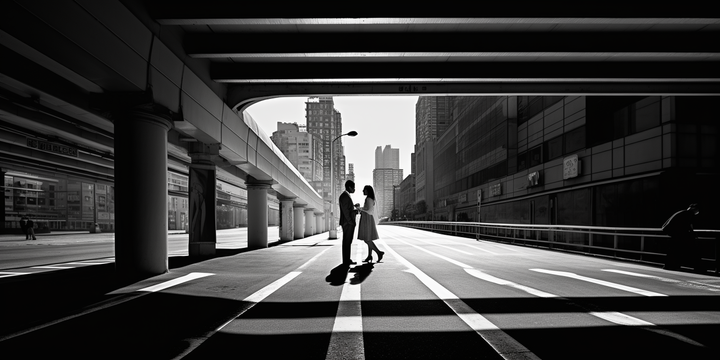A Table Divided
In a reimagined Last Supper, world leaders replace Jesus and his apostles, revealing the delicate balance of global politics and our shared fate.

In the bustling heart of Milan, Italy, stands the Convent of Santa Maria delle Grazie, home to one of the most iconic works of art in human history: Leonardo da Vinci's Last Supper. This 15th-century masterpiece captures the tense moment when Jesus reveals that one of his apostles will betray him. The painting, with its timeless sense of drama, has resonated deeply with generations of viewers. But what if we were to reimagine the painting's cast of characters, replacing Jesus and his disciples with the most powerful world leaders of today? What insights might this modern-day Last Supper reveal about the current global political landscape?
At the center of our updated tableau, we place the American President, the symbolic leader of the free world. To their right and left, we seat the leaders of other powerful nations: China, Russia, Germany, the United Kingdom, France, and India, among others. As we take in this scene, the question that arises is this: which of these leaders will prove to be the great betrayer, undermining the delicate balance that holds our world together?
To answer this question, we must first understand the subtle interactions among these modern-day disciples. Leonardo da Vinci's original painting masterfully captures the tension and emotion swirling around the table. In our contemporary interpretation, each leader's expression and posture would reveal their unique blend of ambition, fear, and self-interest, reflecting the complex web of relationships that underpins global politics.
Yet, as we scrutinize the faces of our present-day apostles, we must also recognize the common thread that unites them all: the pressure to balance the needs and desires of their domestic constituencies against the demands of an increasingly interconnected world. Whether facing the existential threat of climate change, the unprecedented challenges of pandemics, or the ongoing struggle for economic growth and stability, today's world leaders grapple with the daunting task of harmonizing their actions with those of their counterparts on the global stage.
In this new Last Supper, we may find ourselves instinctively searching for the Judas among the leaders, a figure whose betrayal would jeopardize the future of our world. But in doing so, we risk overlooking the more profound truth hidden in plain sight: that the forces which threaten to undermine global cooperation are not solely embodied in a single individual, but rather emerge from the intricate dance between domestic politics and international diplomacy.
The stakes have never been higher. The environmental, social, and economic challenges that confront us are both vast and urgent. In this context, the message of our modern Last Supper is clear: to secure a better future for our planet, we must all be vigilant in holding our leaders accountable, not only to their own constituents but also to the global community as a whole.
As you contemplate this reimagined painting, I invite you to ask yourself: what role do you play in shaping the political landscape that surrounds you? Will you be a passive observer, or an active participant in the global conversation? The answers to these questions lie not only in the hands of world leaders gathered around the table, but also in the hearts and minds of each and every one of us.
Soundtrack for the post is here.


Comments ()